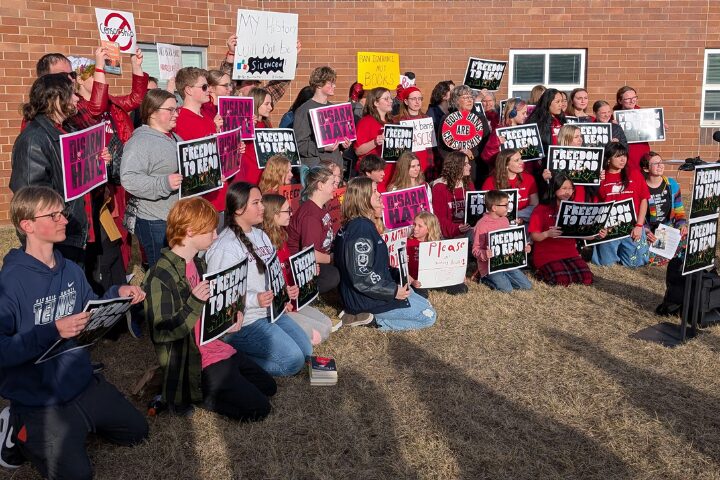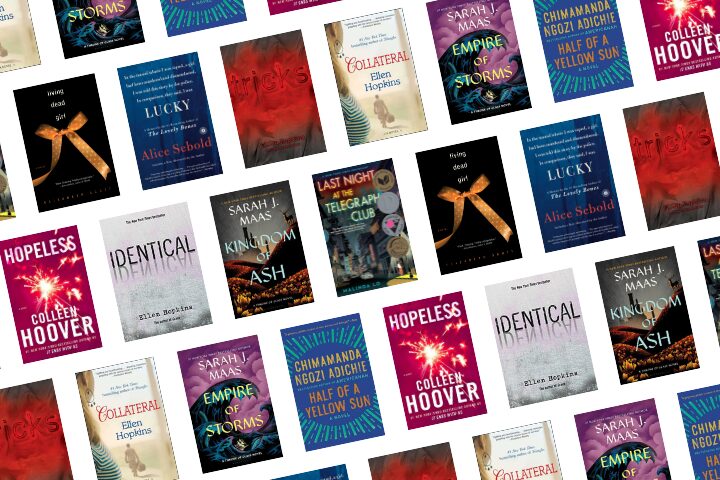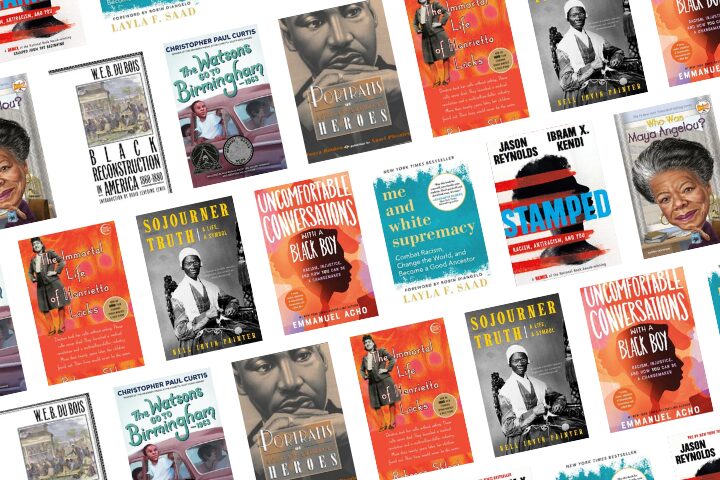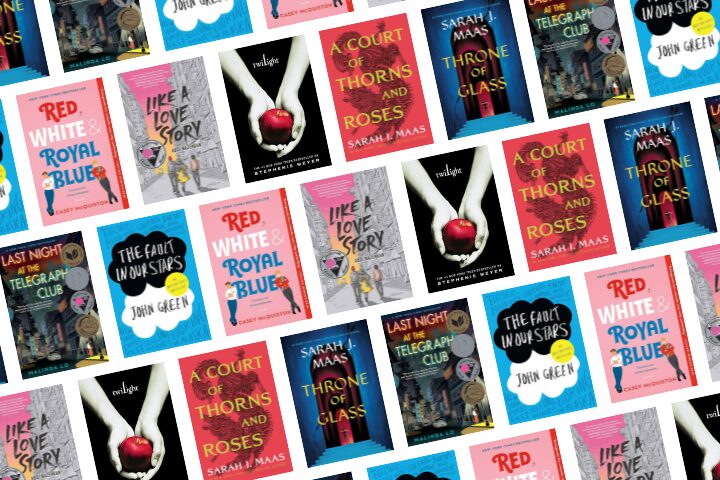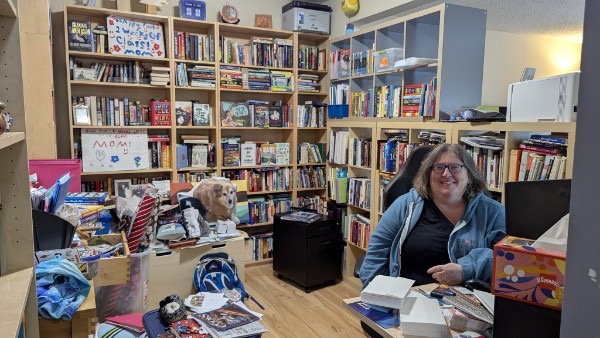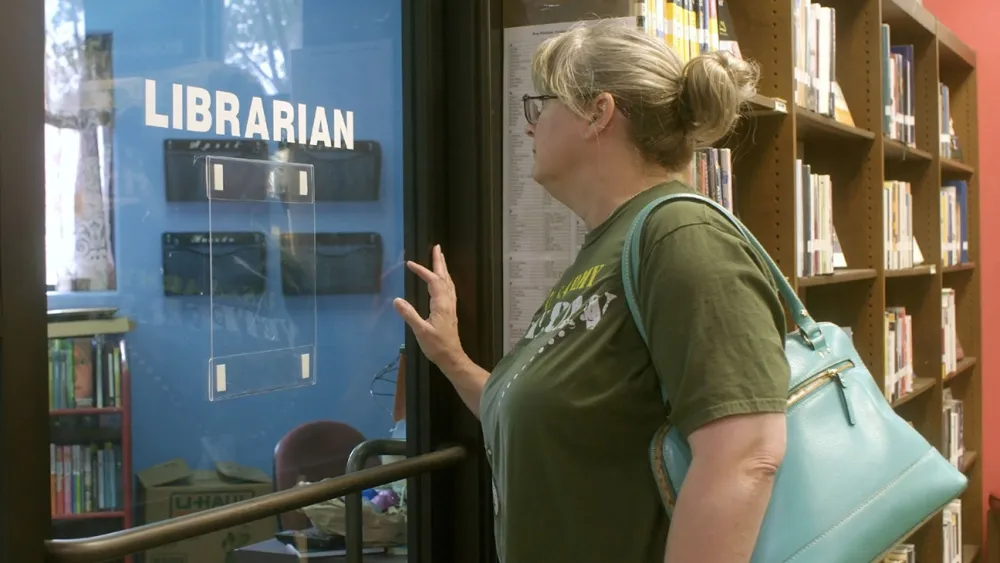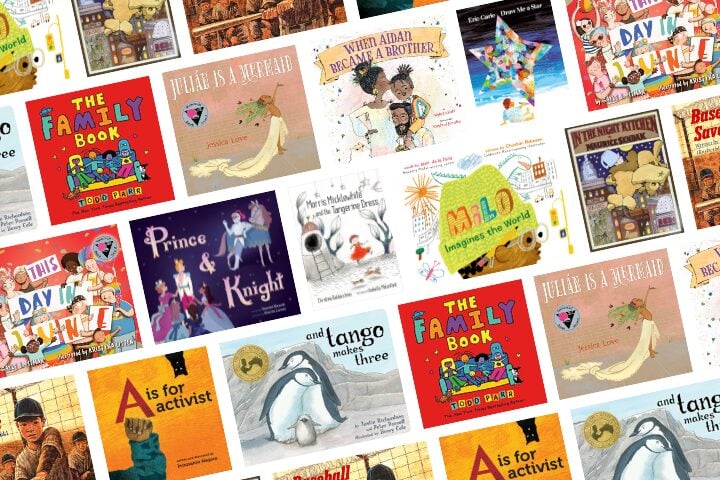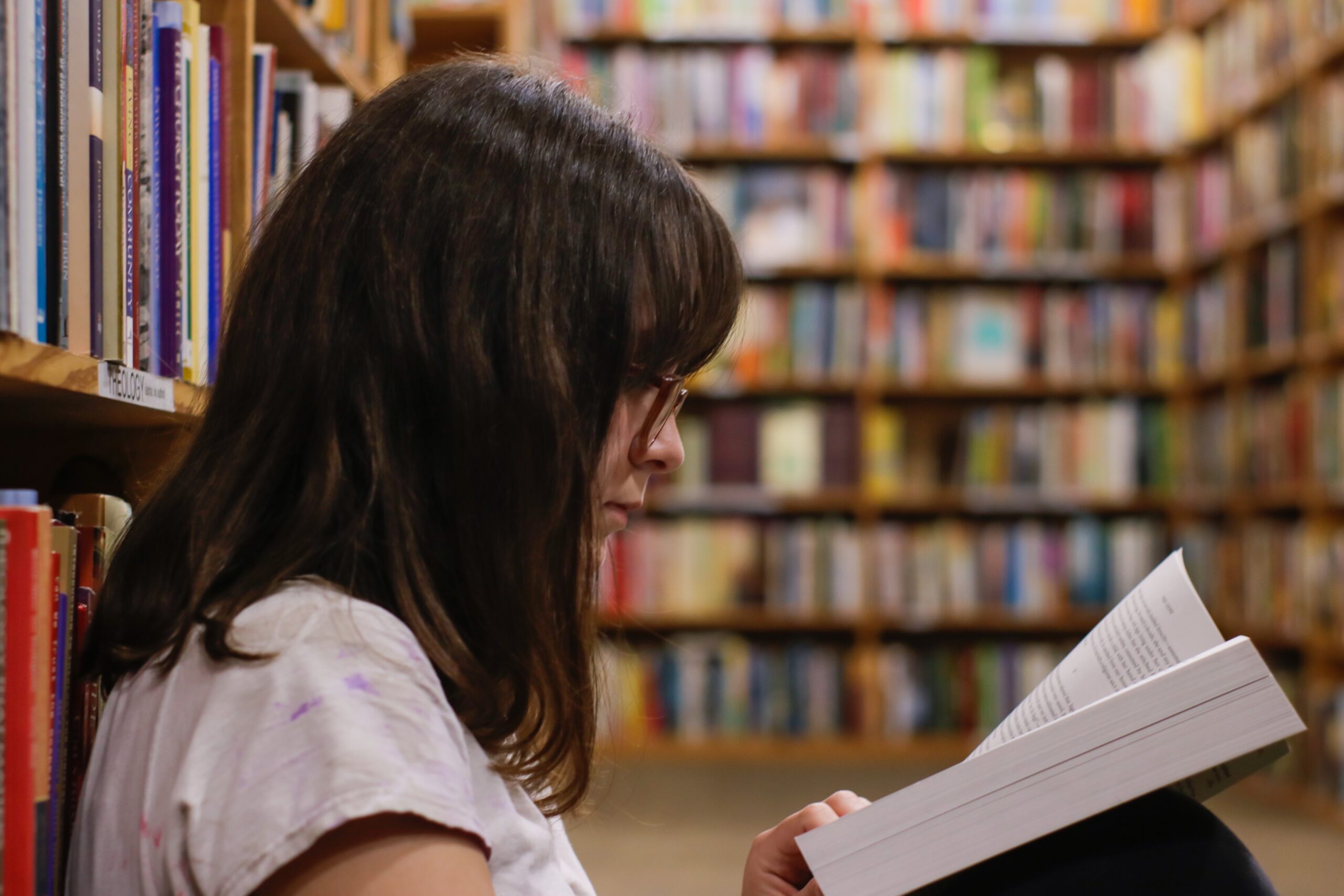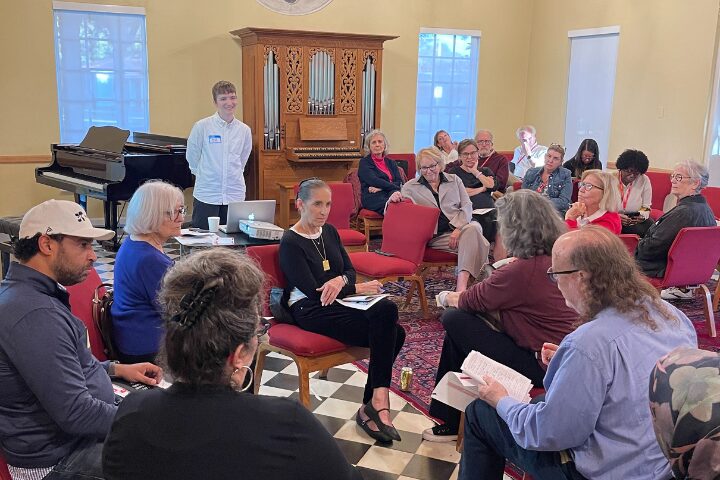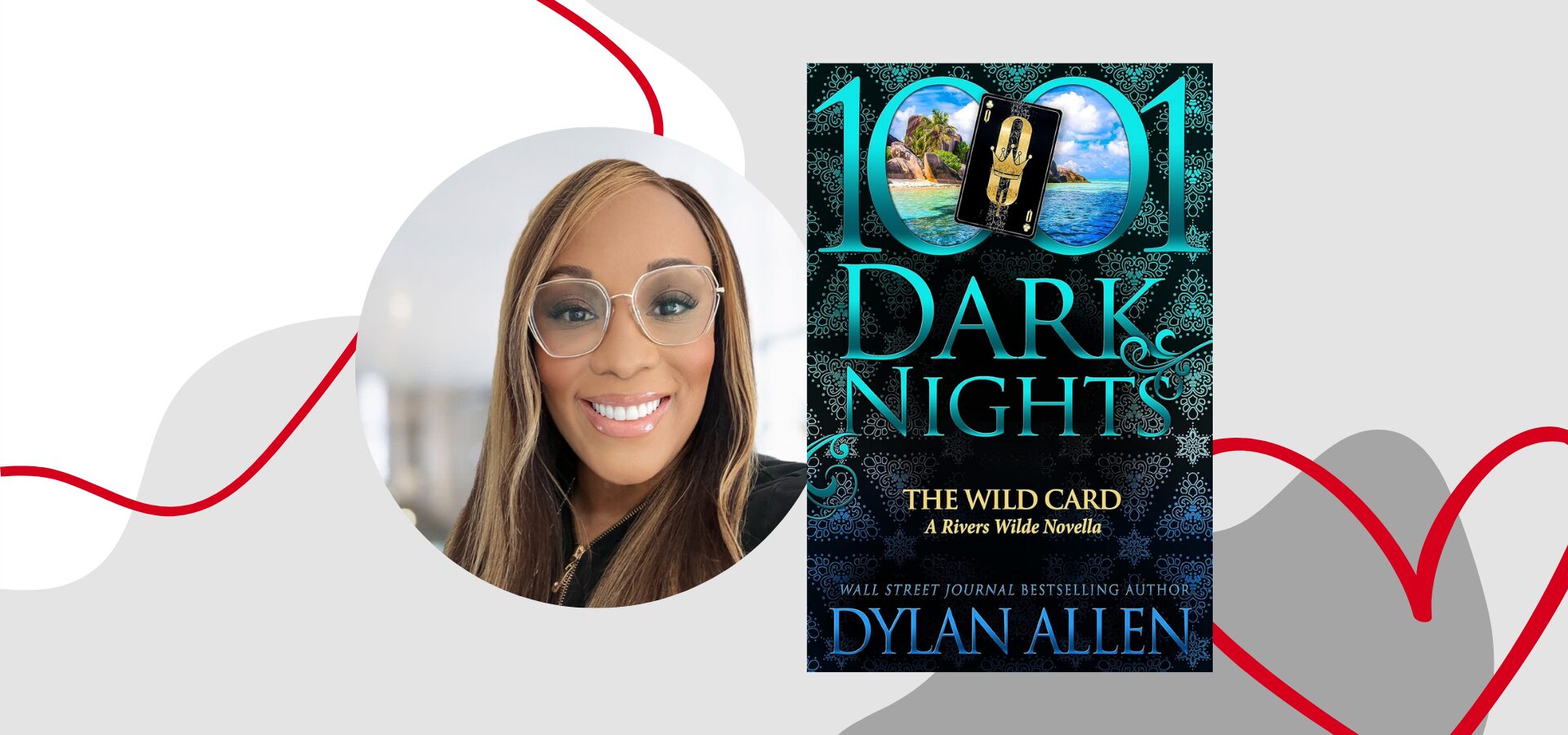
Dylan Allen | Shelf Love
Dylan Allen was a practicing lawyer, but as a lifelong bookworm, she had a dream—write a book before turning 40. She did, and there was no turning back. Though her life since swapping court cases for love stories has not been seamless, Allen writes with empathy and hope, chasing silver linings and happy endings, and always keeping the aspirations alive.
But not all students in public schools across America have access to read romances that center hope. PEN America’s recent reports found that romance novels are increasingly censored for including sexual content. Popular romance fiction can be a great resource for teenagers to learn about love and desire, and spark productive, and often pivotal, conversations about boundaries and consent. With Shelf Love, an interview series with romance authors, PEN America, in collaboration with Authors Against Book Bans, of which Allen is a national leader, is celebrating the love for writing and reading about love.
For the seventh installment in the series, we spoke to Allen, author of Then Came You, The Legacy, The Sun and her Star, among others, about why romance is important and making a comeback.
What was the first romance novel you ever read? What was the last romance novel you read?
The first romance novel I ever read was Silver Angel by Johanna Lindsey when I was twelve. My last romance was Losing Sight by Tati Richardson.
Why do you write romance novels? Who do you write them for?
I write romance novels because I think the genre is uniquely equipped to create empathy in readers. The aspirational nature of the stories has become a necessary aspect of my reading repertoire. At a time when reality is bleak, they have become my touchstone for what humanity is capable of at its best. It always reminds me of the intervening power of love against the greatest obstacles.
Why is it important for books to tackle sex and sexual desire?
Because they are the most universal human experiences and the more we can demystify both notions, the safer the world will be for people whose sexuality and desires fall outside what has been deemed “acceptable.” Given the generally puritanical attitude to sex and sexuality that many of us were raised with, representing diverse, shame free, and authentic sexual experiences is imperative. Many of my readers have told me how liberating and transformative it is to see someone like themselves not simply accepted, but loved.
Why do you think the romance genre has seen such a resurgence in pop culture?
I wouldn’t call it a resurgence. Romance has been the biggest selling genre in fiction for a long time. This is due to, among many factors, the singular rush of endorphins that comes from reading a story that ends on a high note. There is no other genre that treats the characters the reader has connected with, over the course of the book, to be happy despite their mistakes or obstacles, and aren’t punished for being themselves. TikTok, especially in its infancy as a platform, was the only social media space where authors could speak without being censored. Authors who were given small to zero marketing support by their publishers or who were self-publishing without a six-figure budget for marketing had a way to reach readers directly. Authors whose stories have been ignored because of systemic racism, homophobia, transphobia, and purity culture published books that resonated with an audience hungry for diversity of every kind. Despite how romance is marketed, it’s not just for women. These are human stories that resonate with anybody. What we’re seeing is a foreseeable consequence of introducing something that is already wildly popular to even more people.
What value does romance bring to literature writ large?
Joy and the constant reminder that stories written to show women and men with equal agency and value are the stories most people want to read. It keeps literature moving forward and projects ideals that empower its readers to live authentically.
What is the most valuable lesson you have learned from your readers?
That the common human experiences they encounter in my books—falling in love, having your heart broken, finding your voice, getting back up after you’ve been knocked down, finding a family after being rejected by yours— will always eclipse the ethnic, religious, socioeconomic, or gender differences my readers may have with my characters.
What has been the most rewarding part of being a romance writer?
Meeting my incredible readers and getting to call writers I have respected for decades my colleagues.
Dylan Allen is a Wall Street Journal and USA Today bestselling author. She writes compelling, diverse, dramatic, emotional stories with aspirational characters you’ll never forget. She was born in Accra, Ghana, raised in Houston, and lived like a nomad until she became a mom in 2009. She earned her BA in History at Tufts University, her Juris Doctor at Howard University’s School of Law, and an LL.M from the London School of Economics and Political Science. Before becoming a published author, she worked as a lawyer with a focus in Regulatory Compliance. All of these experiences and places inspire her writing. However, nothing inspires Dylan more than her lifelong love of books and reading. Her storytelling is a reflection of her lived experiences and the people she’s encountered along the way. Dylan also loves to travel, explore family history, and cook for the people she loves. A national leader of Authors Against Book Bans, Dylan lives in the Baltimore, Maryland, area with her family. You can find out more about Dylan, her books, and sign up for her newsletter on her website, www.dylanallenbooks.com.

